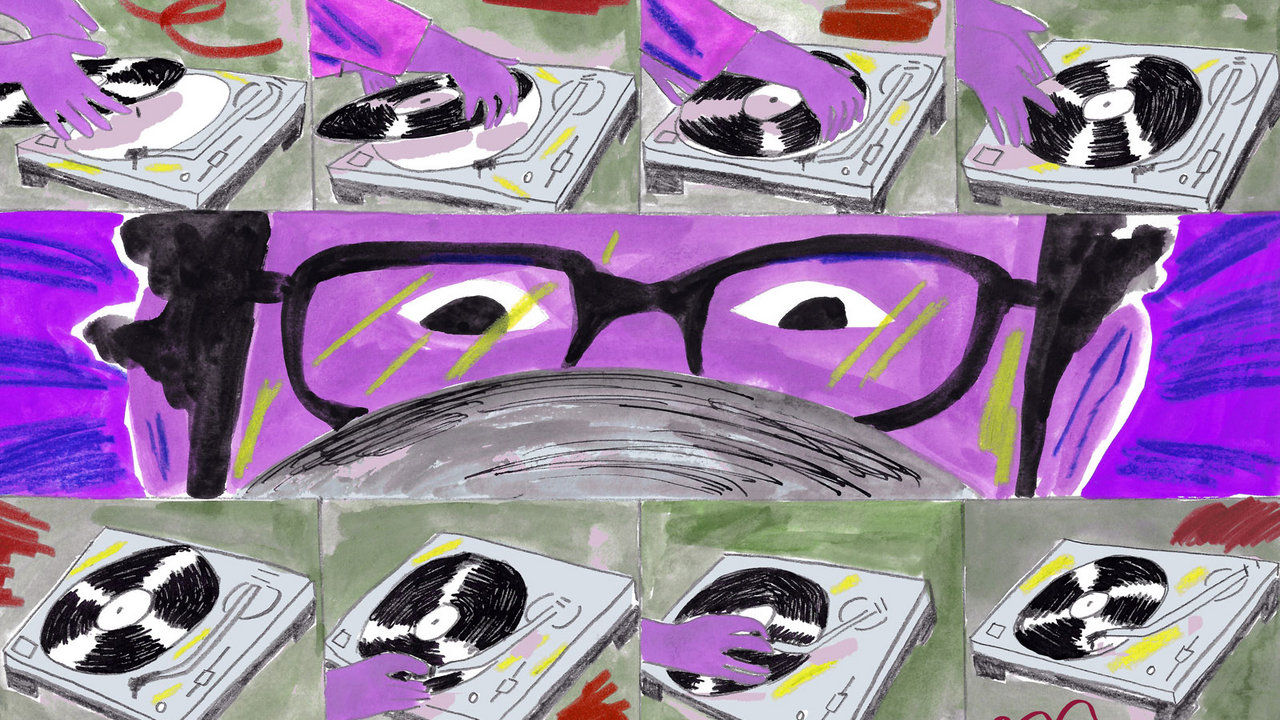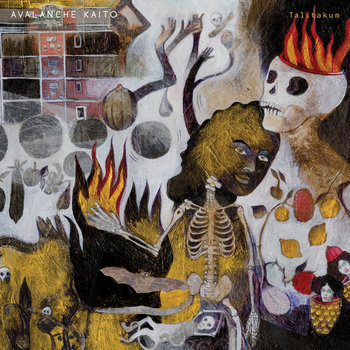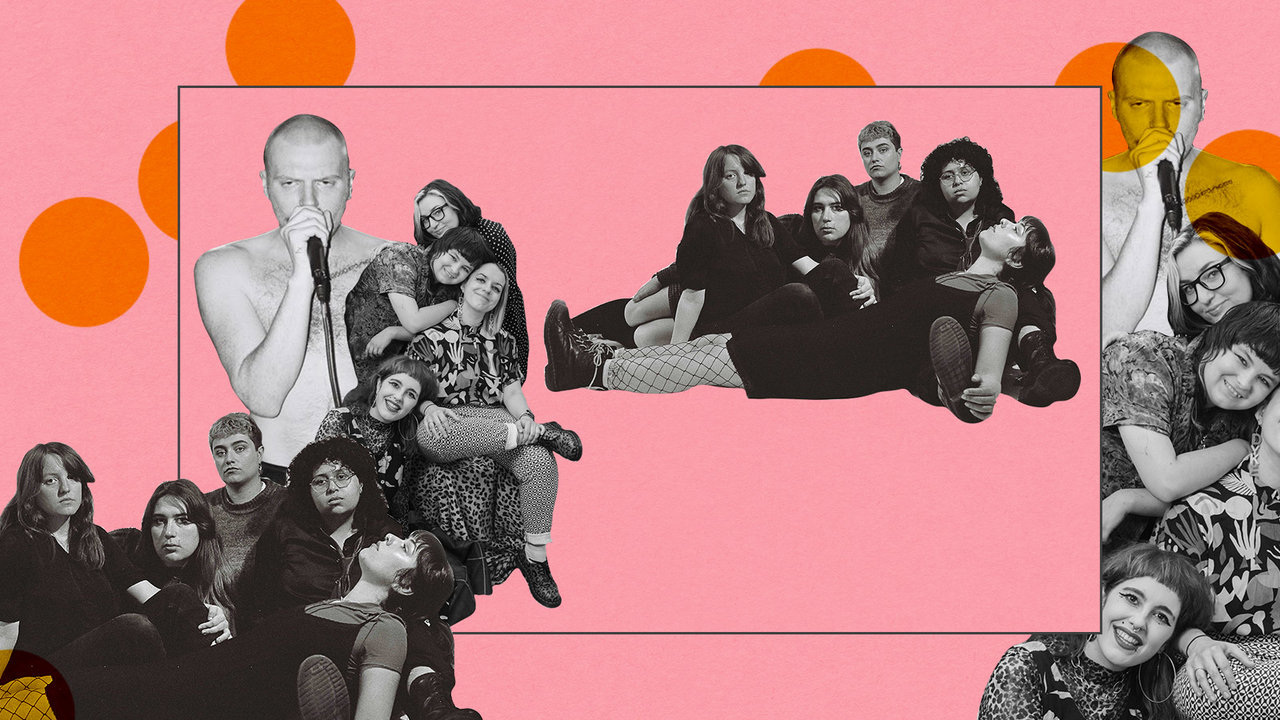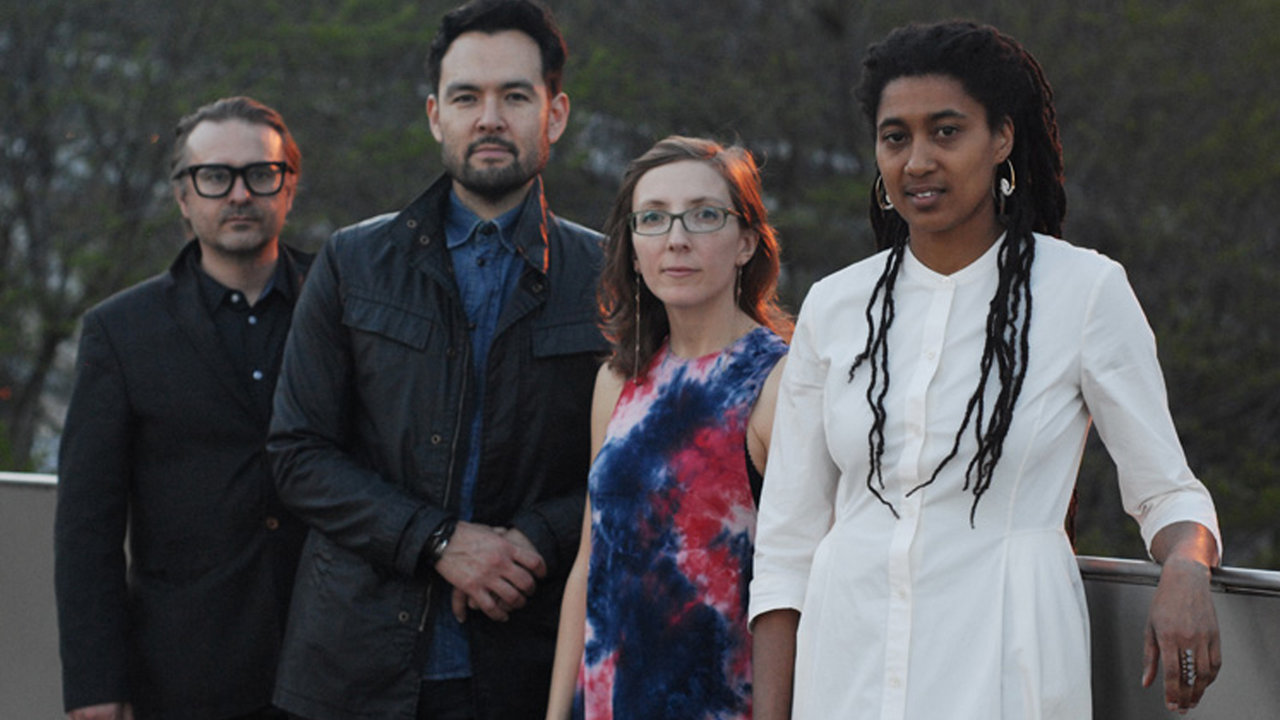
It’s easy to forget that Ian Bavitz has been releasing records as Aesop Rock for nearly 20 years now. That’s because his performance on each and every one of them is so tireless. There’s never a moment where it seems like he’s running out of steam or going through the motions. In fact, every album in his discography seems to follow a distinct, carefully-crafted methodology: If 1997’s self-released Music for Earthworms was the “foot in the door,” 2000’s Float was the statement of purpose. Labor Days, in 2001, was the breakthrough, and everything he’s put out since then has been a strength-to-strength refinement.
He’s too singular in style to be pigeonholed, always finding lyrical end-runs around the stereotype of “impenetrable abstraction” that burdens other indie rappers. He’s gradually revealed more of himself over the years, his storytelling raps and multilayered jabs at the world around him becoming both more introspective and more frank. While his last record, 2012’s Skelethon, dove deep into a set of Gen-X childhood memories and coming-of-age trials, The Impossible Kid is a contemporary portrait of an artist pushing 40, trying to figure out what’s next. He dissects his own disillusioned scenester conflicts (“Dorks”), mulls over a coulda-been career in the visual arts (“Rings”), and sees his past reflected in a younger generation (from “Lotta Years”: “These kids are running wild, I’m still recovering from church/ You shoulda seen me in the ’90s, I could ollie up a curb”).
We talked with Aesop about his working process and what it means to use your art to examine yourself before an audience that doesn’t want their heroes to age.
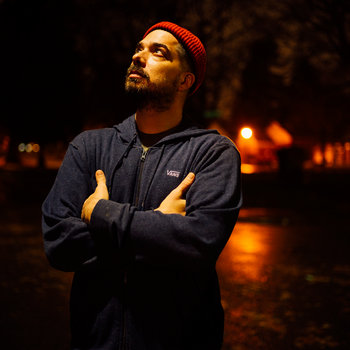

You’ve been in kind of an upheaval—as you put it in your first promotional video for the album, you moved from the most expensive city in the U.S. to the other most expensive city in the U.S. Did the relocation put you in a new frame of mind? Was it tricky to adapt, or was it something you felt was absolutely necessary?
I’d say all of the above. I sort of left [New York] and just wanted to be somewhere cheaper, first of all, because I felt like I wasn’t taking advantage of the city anymore. Ultimately, in my head, I know I’ll be returning to New York at some point. I think before that, I just wanted to get away, or take some time to save some cash. I had the opportunity to move into a weird situation where I had a barn in the woods to live in—it was a one-year agreement, and I went, ‘Yeah, I’ll do that.’ It was the perfect kind of deal to try and write some music there. It was a good place for me to reflect and get started on some songs. So I started, then I moved to Portland, where I am now, and finished the record. I still ultimately have an East Coast move in the back of my mind, but I’ve just been on a mission to… I dunno. I don’t really know what I’m doing, to be honest. [laughs] I’ll get it all figured out.
And you just had a little studio set up in the barn, and you were writing on your own?
Yeah, basically.

It feels like you’ve been busier in the last six years than you were throughout the ’00s—you have your solo work, and then you have all these collaborations. How do you maintain your creative process?
To be honest, the older I get, the less often I see role models doing rap music and aging gracefully. There are exceptions, but you’re more likely to see rock ‘n’ roll or jazz musicians who get old but still have a lot of interesting things to say. I don’t see that much with rap. You almost feel like you’re expecting it to shut off in your head, like you’re going to hit a wall, because that’s what happens. So in the past 10 years or so, I’ve just been like… not that I’ve never taken it seriously, but I have been super into working, so I wouldn’t feel like I didn’t have any job security. I don’t know how long it’s gonna last, but I like doing it—at least the part that’s pushing myself to write the best rap songs I can. So, to a degree I’m just like, ‘Let’s go’—go on tour, come home, work, and try to put as much on my plate as I can. It’s just important for me to get a lot of it. It’s weird, because when I started putting out records around 2000, I was able to have a release out every year. And at then some point it just slowed down. It’s not that I wasn’t working as much—I was. It’s just that, for whatever reason, my creative process became the type in which I would only really put something out every few years.
And you have peers you’ve collaborated with—Rob Sonic in Hail Mary Mallon, Homeboy Sandman in Lice, Kimya Dawson in The Uncluded—has that opened up new routes for working?
Yeah. I had a bunch of years where I’d make solo records, and then I’d tour, and then I’d come home just not in the mood to make solo songs. Some years I would just wait it out and chip away at stuff, but I couldn’t get back into the zone for another year or two. With some of these collaborations, I’d be able to keep going—it’s not always about making some sort of epic solo masterpiece that you build up in your head. The collaborations all take their own shape, and they’re all equally fun. It’s just a different feeling. It’s definitely more enjoyable, to a degree. Nothing feels like finishing a solo album and saying, ‘Ah, shit, this is what I made, by myself.’ But at the same time, there’s a fun-ness that sometimes gets lost in that approach. With all the collabs, I’m just able to enjoy music-making a little more. So I just try to keep that in rotation.
The Impossible Kid’s first single “Rings” explores the idea of having a specific passion—in this case, drawing—and having that interest fall dormant. How did your dream of becoming an artist conflict with your decision to become a rapper, and what inspired you to bring that up as a subject?
My path in life was art, forever. I got out of college with a degree in painting and I moved back to New York City, and I’d always been working on music. But the way my life was compartmentalized in my head, I had visual arts as my main thing and music as my side thing. I worked on them equally, but that’s just how it made sense to me. Then at some point I was making tapes, and I’d go to shows at night and rap. And eventually, I noticed people taking a liking to it. It was pretty encouraging to see that when I was young.
So I started focusing on that. I realized I could sell these tapes for a few bucks, then I started making CDs, and then before you know it, somebody was contacting me from the West Coast. I don’t even know how [the music] got out there, man. This whole thing started happening—and it felt awesome, like, ‘Someone appreciates what I’m doing.’ Over the course of a couple years in the late ’90s, my focus just shifted from one to the other. For some reason, I always have a sketchbook around, but I lost focus on drawing pictures and painting. It’s always been in the back of my mind—it’s kind of haunted me. There’s a lot of aspects of music I don’t enjoy—I’m not the kind of person that goes out and mixes it up, so going on tour is tough for me. It’s something I tolerate, but not necessarily something I always love. So in the back of my head, I really miss [drawing], and I kind of lost what little skill I had acquired. I have a bunch of friends who are visual artists, and those are the people I find myself looking up to—almost more than musicians. I think being in the barn and then being here in Portland, I’ve been trying to draw more and really make an attempt to revisit that. It’s something I love, and I’ve been trying to get back to that a little bit.
It worked for Captain Beefheart.
Exactly.

Skelethon felt like it was an album that focused on memories, coming-of-age stories, personal flashbacks—The Impossible Kid adopts the perspective of someone looking back on his past through the lens of the present and thinking, ‘Am I still this person?’ Was there a deliberate shift in perspective, where you thought, ‘I’m an older artist now. I want to see if there’s something in my background that’ll either keep me going, or can speak to these younger folks’?
A little bit, yeah. In general, I just write about what keeps me interested. Sometimes, it’s something funny. Sometimes, it’s just thinking about growing up, and how time has changed. I think with so much of rap music, what we’re used to hearing are songs about the rap scene, or subject matter that just gets recycled. As a guy who’s, like, 40, I don’t feel like I’m in any scene. This is my craft, and I love it, but it’s not about nightlife for me anymore. So I just take what’s around me, and what I’m thinking, and translate it into that.
I think it sort of touches on what we talked about earlier—people don’t age very gracefully in rap, and I think a lot of it has to do with trying to force this youthfulness that isn’t quite there. People have trouble figuring out how to adapt everything they’ve learned over the first 10 or 15 years of their career to identify where they are right now. I’m conscious of that, and want to be able to do this for a while, because I like it. So I’m still trying to figure out what I can write about that’s still interesting and relevant. I don’t wanna be that 40-year-old guy using slang words that 18-year-olds are using. It’s just about trying to adapt, really, to a changing life. I think when everyone first starts rapping, they’re out and about—I was in New York, going to open mics and shows, and the underground rap scene was what was happening. That’s not even in my life anymore. It’s just become about something else for me.
And that’s the thing about your records—people might have specific memories attached to Labor Days or None Shall Pass, but they don’t really feel ‘of their time.’ They’re just individual works, not necessarily something people would point to and say, ‘Oh, this is a youth sound, and this new album is his mature effort.’ It’s all of a piece, a mindset that is fairly consistent while still having room for change.
I appreciate that. I mean, you don’t wanna sound adult contemporary, you just need to be… It’s a tricky transformation. If you’re in school studying something, you recognize you’re gathering a bunch of skills over the years and you’re being trained to apply them. If you’re a rapper who probably fucked up in school and made his or her way into this odd career choice, you’re not really recognizing you’re learning stuff. You’re learning all this stuff about language and writing and music-making, but it doesn’t register. You’re just kind of writing rhymes. It doesn’t register in the same way. At some point, I have to start thinking, ‘What have I learned?’ I have a degree of success, so I must be, on some level, decent at this—at least in some people’s eyes. So I have to figure out what I can apply, and how I can diversify and keep going instead of just burning out and saying, ‘I’m not young anymore, it’s over.’ [Laughs] I think about that a lot, and I’m making a conscious effort to cover some subject matter that’s not gonna come off like that. It’s just gonna come off, hopefully, sounding natural.
You’ve got a rep for having this super-complex language in your records, but there’s always been a storytelling element in your music that conveys a direct message, regardless of the intricate metaphors or allusions.
I’ve actually had a few people say that very thing about this particular project more than any other. It’s weird, because when the stuff was more cryptic, it wasn’t like it was the goal to be cryptic. It’s just what was happening. Nowadays, the stuff is no less lyrical, but it’s more accessible and more directly understandable. I think that’s just a testament to learning how to use the language better, and getting in touch with what I actually like—revisiting songs and going, ‘Well, this didn’t work, and this part did.’ [You find] parts and pieces that really resonate with you. Eventually, it all becomes a culmination of that: trimming the fat and really focusing on the stuff that works. This time around, that’s just what it sounds like. It’s all phases. Next time who knows?
Have you grown comfortable with being a bit more personal on your records?
Not really… [laughs]. But I don’t have a choice. It’s what I write about—sometimes I’ll write something, and I’ll be like, ‘I feel good about what I did, I better keep going.’ I feel like I’ve always been personal with the stuff, but perhaps being less cryptic in the lyrics is maybe making it open up a little more, and the impact is a little more immediate, so it can feel more personal. It’s just something I gotta deal with.
—Nate Patrin



